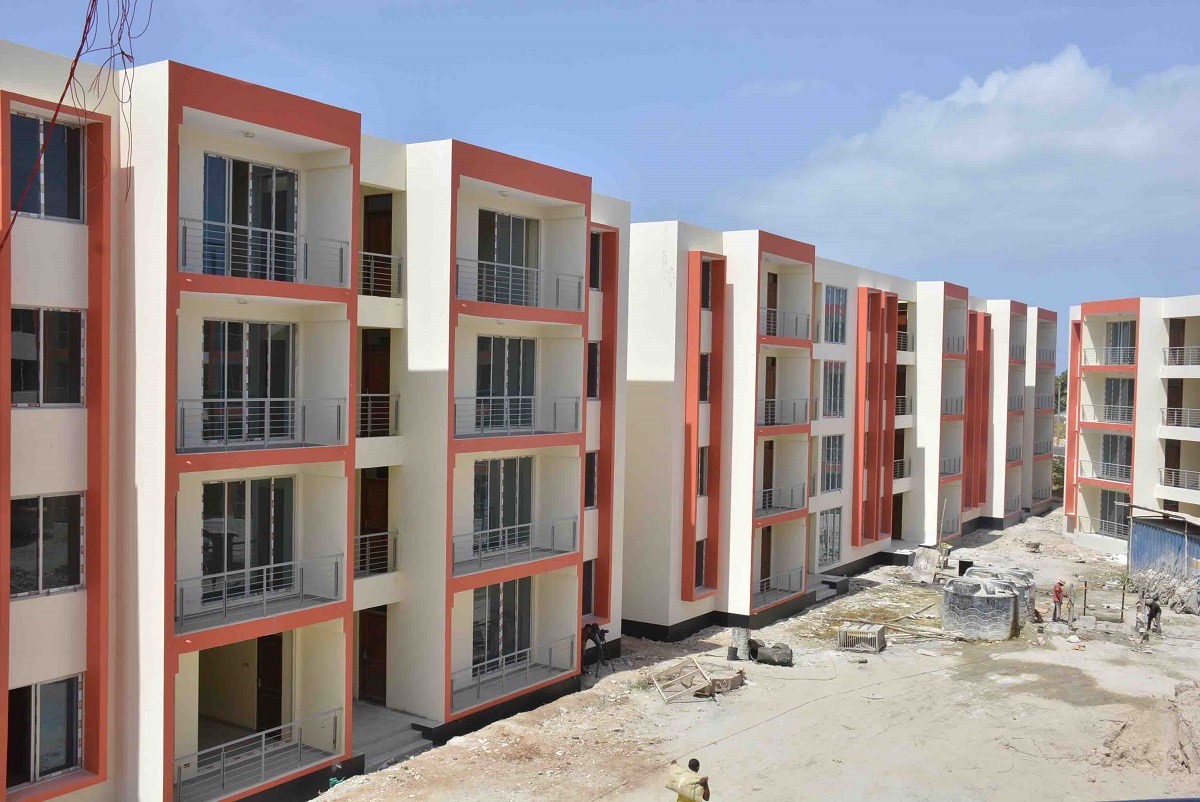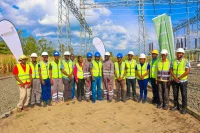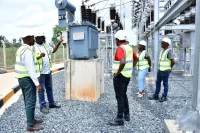The Kenya government’s ambitious plan to construct 500,000 new affordable housing units by 2022 is expected to more than double current output, lifting the real estate and construction sector’s contribution to GDP to 14%.
According to Centre for Affordable Housing Finance in Africa (CAHF) 2018 Year Book, Kenya’s government has been at the forefront in efforts to supply more affordable housing units, as part of President Uhuru Kenyatta’s “Big Four” plan.
For instance, in the current budget 2018/19, the National Treasury allocated $1.5 billion (Ksh150 billion) for public private partnership projects for housing for civil servants, police and prisons and for affordable housing in the period 2018-2020.
National Treasury also reduced corporate tax rate for developers who construct at least 100 units per year. The Government is working on a plan to establish a National Social Housing Development Fund to strengthen the National Housing Corporation.
A review of the National Construction Authority Act, the Built Environment Bill and related legislation is already under way, notes CAHF in its current review of Africa’s housing finance markets.
CAHF has been operating as an independent think-tank in South Africa since May 2014, pursuing its mission of making Africa’s housing finance markets work. CAHF’s work extends across the continent, and it is supported by and collaborates with a range of funders and partners.
According to real estate firm Hass Consult, rental housing is a significant feature in Kenya. Much of this middle-income rental housing is offered by small scale landlords who build 20 to 40 units on small, family owned plots. This investment is generally financed with equity, and the pooling of personal loans or a loan from the SACCO, as the accommodation is built incrementally.
The units are basic, often with poor lighting and limited cross ventilation, and no common amenities. They are managed by the owner or a third party agent. At the same time, developers are building larger formal estates of more than one hundred apartments, and selling these on a condominium or sectional title basis to investors, who then rent them out to a lower or middle income target market.
CAHF notes that a key challenge in Kenya’s housing sector relates to issuance of title deeds. Land titling is a flagship programme of the Kenya Government, which has registered over 2.43 million title deeds between July 2013 and February 2017.
The government is also engaging in the digitization of its 57 land registries, which have been keeping manual records since 1895. While the President’s Delivery Unit reports that the Nairobi registry is fully digitized, developers argue that issuance of title deeds remains cumbersome.
The World Bank, in its Ease of Doing Business Report 2018, observes that Kenya scrapped the clearance fees previously payable to the National Environment Management Authority and the National Construction Authority, effectively reducing construction cost.
With clear political will promoting a range of interventions to ensure its success, the future of Kenya’s affordable housing sector looks very positive, notes the WB but adds there is more value chain interventions that require attention.
The effective supply of land and infrastructure at the local, county level, is on the top of this list. While the devolution of powers to the 47 County Governments is promising, these units will need to engage explicitly with the time and cost of the housing procedures they control.
Other policy interventions look imminent. For its part, the Kenya Private Developers Association (KPDA) is mobilizing the private sector and creating a useful platform for debate and innovation through its Affordable Housing Task Force.
Also Read: The key things you need to know before investing in real estate
A key opportunity that must not be lost in the push towards scale, however, is for small scale initiatives that mobilize local level capacity, support entrepreneurialism, and often better target the affordability realities of households that seek improved housing conditions.
This will require much better targeted housing financing products, whether for developers or end-users; incremental construction or larger scale developments.
The promise of a Kenya Mortgage Refinancing Company (KMRC) to serve this market diversity is encouraging, the World Bank says.













1 Comment